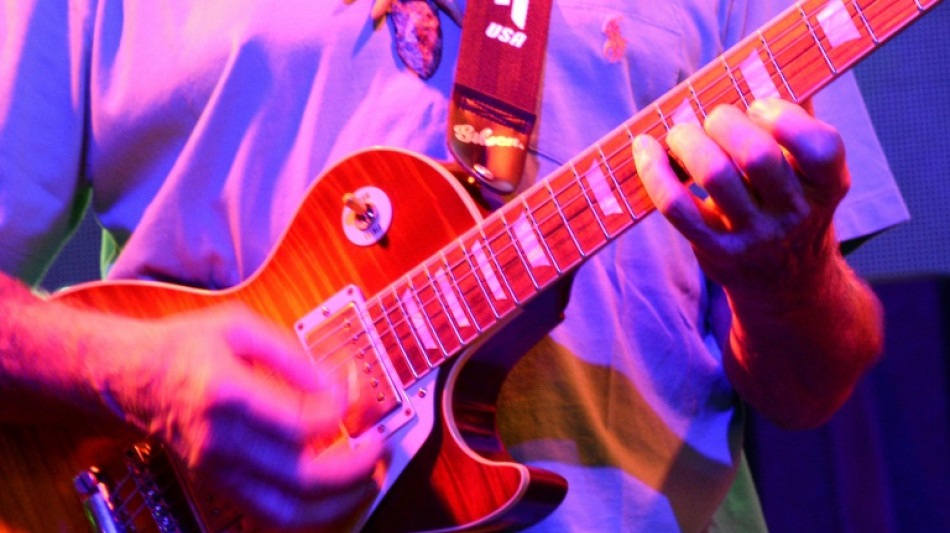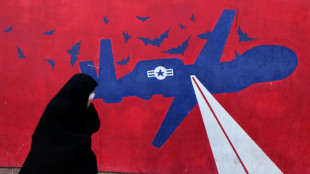
-
 Vonn to provide injury update as Milan-Cortina Olympics near
Vonn to provide injury update as Milan-Cortina Olympics near
-
France summons Musk for 'voluntary interview', raids X offices

-
 Stocks mostly climb as gold recovers
Stocks mostly climb as gold recovers
-
US judge to hear request for 'immediate takedown' of Epstein files

-
 Russia resumes large-scale strikes on Ukraine in glacial temperatures
Russia resumes large-scale strikes on Ukraine in glacial temperatures
-
Fit-again France captain Dupont partners Jalibert against Ireland

-
 French summons Musk for 'voluntary interview' as authorities raid X offices
French summons Musk for 'voluntary interview' as authorities raid X offices
-
IOC chief Coventry calls for focus on sport, not politics

-
 McNeil's partner hits out at 'brutal' football industry after Palace move collapses
McNeil's partner hits out at 'brutal' football industry after Palace move collapses
-
Proud moment as Prendergast brothers picked to start for Ireland

-
 Germany has highest share of older workers in EU
Germany has highest share of older workers in EU
-
Teen swims four hours to save family lost at sea off Australia

-
 Ethiopia denies Trump claim mega-dam was financed by US
Ethiopia denies Trump claim mega-dam was financed by US
-
Norway crown princess's son pleads not guilty to rapes as trial opens

-
 Russia resumes strikes on freezing Ukrainian capital ahead of talks
Russia resumes strikes on freezing Ukrainian capital ahead of talks
-
Malaysian court acquits French man on drug charges

-
 Switch 2 sales boost Nintendo profits, but chip shortage looms
Switch 2 sales boost Nintendo profits, but chip shortage looms
-
China to ban hidden car door handles, setting new safety standards

-
 Switch 2 sales boost Nintendo results but chip shortage looms
Switch 2 sales boost Nintendo results but chip shortage looms
-
From rations to G20's doorstep: Poland savours economic 'miracle'

-
 Russia resumes strikes on freezing Ukrainian capital
Russia resumes strikes on freezing Ukrainian capital
-
'Way too far': Latino Trump voters shocked by Minneapolis crackdown

-
 England and Brook seek redemption at T20 World Cup
England and Brook seek redemption at T20 World Cup
-
Coach Gambhir under pressure as India aim for back-to-back T20 triumphs

-
 'Helmets off': NFL stars open up as Super Bowl circus begins
'Helmets off': NFL stars open up as Super Bowl circus begins
-
Japan coach Jones says 'fair' World Cup schedule helps small teams

-
 Equities and precious metals rebound after Asia-wide rout
Equities and precious metals rebound after Asia-wide rout
-
Do not write Ireland off as a rugby force, says ex-prop Ross

-
 Winter Olympics 2026: AFP guide to Alpine Skiing races
Winter Olympics 2026: AFP guide to Alpine Skiing races
-
Winter Olympics to showcase Italian venues and global tensions

-
 Buoyant England eager to end Franco-Irish grip on Six Nations
Buoyant England eager to end Franco-Irish grip on Six Nations
-
China to ban hidden car door handles in industry shift

-
 Sengun leads Rockets past Pacers, Ball leads Hornets fightback
Sengun leads Rockets past Pacers, Ball leads Hornets fightback
-
Waymo raises $16 bn to fuel global robotaxi expansion

-
 Netflix to livestream BTS comeback concert in K-pop mega event
Netflix to livestream BTS comeback concert in K-pop mega event
-
Rural India powers global AI models

-
 US House to vote Tuesday to end shutdown
US House to vote Tuesday to end shutdown
-
Equities, metals, oil rebound after Asia-wide rout

-
 Bencic, Svitolina make history as mothers inside tennis top 10
Bencic, Svitolina make history as mothers inside tennis top 10
-
Italy's spread-out Olympics face transport challenge

-
 Son of Norway crown princess stands trial for multiple rapes
Son of Norway crown princess stands trial for multiple rapes
-
Side hustle: Part-time refs take charge of Super Bowl

-
 Paying for a selfie: Rome starts charging for Trevi Fountain
Paying for a selfie: Rome starts charging for Trevi Fountain
-
Faced with Trump, Pope Leo opts for indirect diplomacy

-
 NFL chief expects Bad Bunny to unite Super Bowl audience
NFL chief expects Bad Bunny to unite Super Bowl audience
-
Australia's Hazlewood to miss start of T20 World Cup

-
 Bill, Hillary Clinton to testify in US House Epstein probe
Bill, Hillary Clinton to testify in US House Epstein probe
-
Cuba confirms 'communications' with US, but says no negotiations yet

-
 Iran orders talks with US as Trump warns of 'bad things' if no deal reached
Iran orders talks with US as Trump warns of 'bad things' if no deal reached
-
From 'watch his ass' to White House talks for Trump and Petro


In already precarious industry, US musicians struggle for health care
In 2019, American musician Jon Dee Graham suffered a heart attack that left him "dead" for several minutes -- a scare that inspired his album, "Only Dead For a Little While."
Eighteen months later he had a stroke. And now, the 66-year-old is facing his biggest health challenge yet -- and like most musicians, he's underinsured.
Graham suffered an infection following spinal surgery that's developed into sepsis, and his son said he needs intravenous antibiotic treatments twice daily.
But because his treatment is at home, William Harries-Graham said Medicare -- the US federal health program that insures elder adults -- won't cover his father.
Harries-Graham said the hospital demanded payment upfront in the "thousands of dollars."
The artist "fighting for his life" couldn't afford it, and recently launched a campaign to sell his drawings, a hobby that has become a means of survival.
Graham's story is not uncommon: Many musicians confront the same health insurance nightmares all Americans do, navigating a labyrinthian system rife with out-of-pocket costs.
But musicians are gig workers, which makes it even harder. Most working artists aren't rich and have variable income, in a cutthroat industry where employer-subsidized insurance for musicians is rare.
Pop phenom Chappell Roan underscored the issue on one of music's biggest platforms earlier this year at the Grammys, calling out record labels for not insuring their artists in front of industry heavyweights as she accepted the prize for Best New Artist.
Roan said she herself was dropped from her label and went uninsured for a time: "It was devastating to feel so committed to my art and feel so betrayed by the system and dehumanized," she said onstage.
"Record labels need to treat their artists as valuable employees with a livable wage and health insurance and protection."
- 'Just a patch' -
About a month after Roan's statement, glam punk pioneer David Johansen died at 75 years old. His death came just weeks after he had started a GoFundMe to support his cancer treatment.
In 2024, Matthew Sweet, the 1990s-era alt rocker, suffered a stroke while on tour.
He was uninsured, so his management created a similar online crowdsourcing fundraiser.
It's raised more than $640,000 to date to support his long-term recovery.
But such crowdsourcing is a stop-gap, said Tatum Hauck-Allsep, founder and CEO of the Nashville-based Music Health Alliance that helps musicians negotiate medical bills.
"In some cases, things like a GoFundMe is a great resource, but in other cases, it's just a patch. We want to find a long-term solution," Hauck-Allsep told AFP.
She applauded Roan for highlighting the issue, but said insurance from record labels isn't necessarily what artists want, because it could mean they need to become employees, rather than independent artists.
Still, "there should be an easier pathway to health care access," she said.
Bruce Iglauer, head of the blues label Alligator Records, echoed Hauck-Allsep's point, saying that artists are self-employed.
"We guarantee recording budgets and royalty rates, but have no input into, or knowledge of, what other income the artists are making," Iglauer said.
"They are not getting weekly paychecks from us."
And smaller labels say increasingly thin margins would make providing insurance impossible: "The costs of manufacturing have gone up, physical sales have gone down. Streaming sales pay paltry sums," said Kenn Goodman, founder and CEO of Chicago-based indie record label Pravda Records.
"It's just not financially feasible," he added. "I wish it was."
- 'Terrifying' -
Many US musicians get health care through the Barack Obama-era Affordable Care Act -- but that coverage is under threat by the Donald Trump administration, which is vying to complicate health care access, and perhaps eventually scrap the system altogether.
That would be a "disaster," said Paul Scott, director of the Healthcare Alliance for Austin Musicians, a non-profit that helps about 3,200 musicians a year in Texas get signed up for coverage under the government health care plan.
Many ACA plans still don't come cheap, but it's made a huge difference for access, he said.
Jettisoning the ACA would likely mean increased prices that would prompt a lot of artists to "drop their health insurance," Scott said. "And that will be a hit to our safety net hospitals and charity care."
As for Graham, selling his sketches has successfully funded his first few weeks of treatment.
But his son doesn't know if that will be enough.
And Harries-Graham worries about those who can't find fundraising support thanks to their fame.
"I don't know what someone else would have done," he said. "They would have been yet another person who goes into severe medical debt."
"That is terrifying."
Q.Najjar--SF-PST



